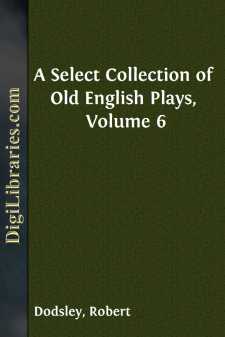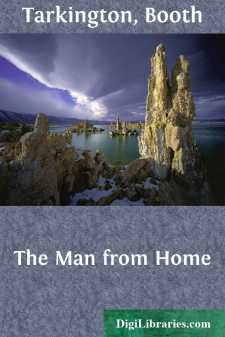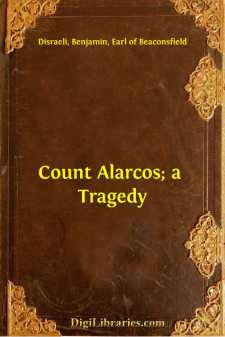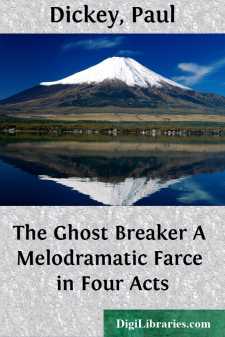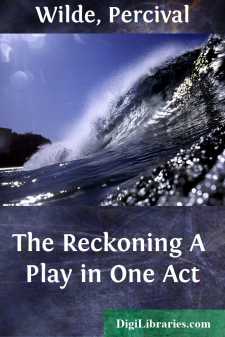Drama Books
Sort by:
ACT THE FIRST. SCENE I. A Grove before the Temple of Diana. IPHIGENIA.Beneath your leafy gloom, ye waving boughsOf this old, shady, consecrated grove,As in the goddess' silent sanctuary,With the same shudd'ring feeling forth I step,As when I trod it first, nor ever hereDoth my unquiet spirit feel at home.Long as the mighty will, to which I bow,Hath kept me here conceal'd, still, as at...
more...
by:
Robert Dodsley
Four of the five ensuing Plays belong to a peculiar class of our early dramatic performances never yet especially noticed, nor sufficiently illustrated. Many specimens have of late years been printed, and reprinted, of Miracle-plays, of Moral-plays, and of productions written in the most matured period of our dramatic literature; but little or nothing has been done to afford information respecting a...
more...
by:
Booth Tarkington
THE FIRST ACT SCENE: The terrace of the Hotel Regina Margherita, on the cliff at Sorrento, overlooking the Bay of Naples. There is a view of the bay and its semi-circular coast-line, dotted with villages; Vesuvius gray in the distance. Across the stage at the rear runs a marble balustrade about three feet high, guarding the edge of the cliff. Upon the left is seen part of one wing of the hotel,...
more...
ACT I SCENE 1 A Street in Burgos; the Cathedral in the distance. [Enter Two Courtiers.] I:1:1 1ST COURT.The Prince of Hungary dismissed? I:1:2 2ND COURT.IndeedSo runs the rumour. I:1:3 1ST COURT.Why the spousal noteStill floats upon the air! I:1:4 2ND COURT.Myself this mornBeheld the Infanta's entrance, as she threw,Proud as some hitless barb, her haughty glanceOn our assembled chiefs. I:1:5 1ST...
more...
by:
Booth Tarkington
ACT I ANDREW GIBSON'S _office in his piano factory where he manufactures "The Gibson Upright." A very plain interior; pleasant to the eye, yet distinctly an office in a factory, and without luxuries; altogether utilitarian. Against the wall on our right is a roll-top desk, open, very neat, and in the centre of the writing pad a fresh rose stands in a glass of water. Near by is a long,...
more...
by:
Alexander Dyce
THE TRAGICAL HISTORY OF DOCTOR FAUSTUS FROM THE QUARTO OF 1616. Enter CHORUS. CHORUS. Not marching in the fields of Thrasymene,Where Mars did mate the warlike Carthagens;Nor sporting in the dalliance of love,In courts of kings where state is overturn'd;Nor in the pomp of proud audacious deeds,Intends our Muse to vaunt her heavenly verse:Only this, gentles,—we must now performThe form of...
more...
by:
Paul Dickey
THE CAST Princess Maria Theresa of Aragon. Warren Jarvis, of Kentucky. Nita, the Princess' Maid. House Detective, Manhattan Hotel. Rusty Snow, Warren Jarvis' Colored Servant. Detectives, from Police Headquarters. Hotel Porter. Steward, on S.S. Aquitania. Carlos, Duke d'Alva. Dolores, the Innkeeper's Daughter. Vardos, Messenger to the Missing Prince. Don Robledo, a Soldier of...
more...
by:
Tom Taylor
ACT I. Scene 1—Drawing room in 3. Trenchard Manor, C. D., backed by interior, discovering table with luncheon spread. Large French window, R. 3 E., through which a fine English park is seen. Open archway, L. 3 E. Set balcony behind. Table, R., books and papers on it. Work basket containing wools and embroidery frame. A fashionable arm chair and sofa, L. 2 E., small table near C. D. Stage handsomely...
more...
by:
Percival Wilde
THE RECKONING The scene is a barber shop. At the center is the chair, facing a mirror and washstand at the right. The tiled walls are sprinkled with the usual advertisements. At the rear, a door leads up to the street by a flight of two or three steps. A dock on the left wall indicates three. At the rise of curtain, THE BARBER, a man of fifty, is discovered sharpening a razor, and whistling softly to...
more...
by:
Robert Browning
INTRODUCTORY NOTE ROBERT BROWNING stands, in respect to his origin and his career, in marked contrast to the two aristocratic poets beside whose dramas his "Blot in the 'Scutcheon" is here printed. His father was a bank clerk and a dissenter at a time when dissent meant exclusion from Society; the poet went neither to one of the great public schools nor to Oxford or Cambridge; and no...
more...



